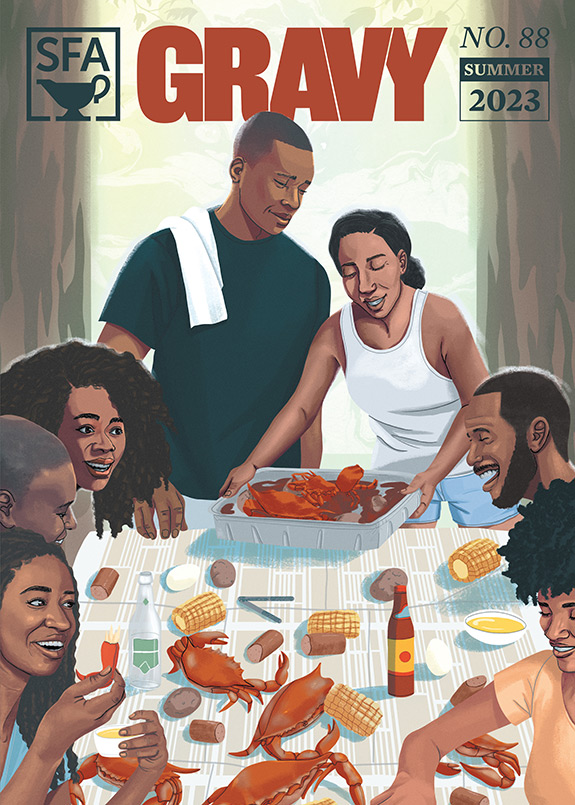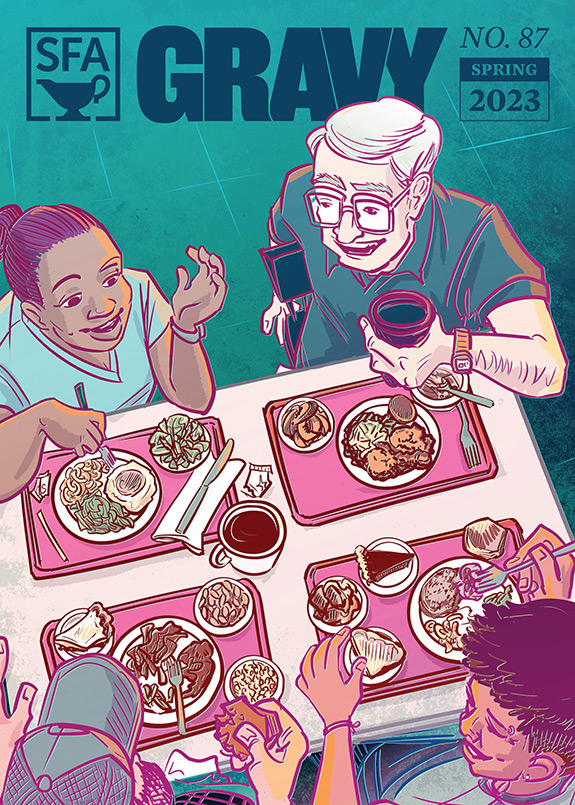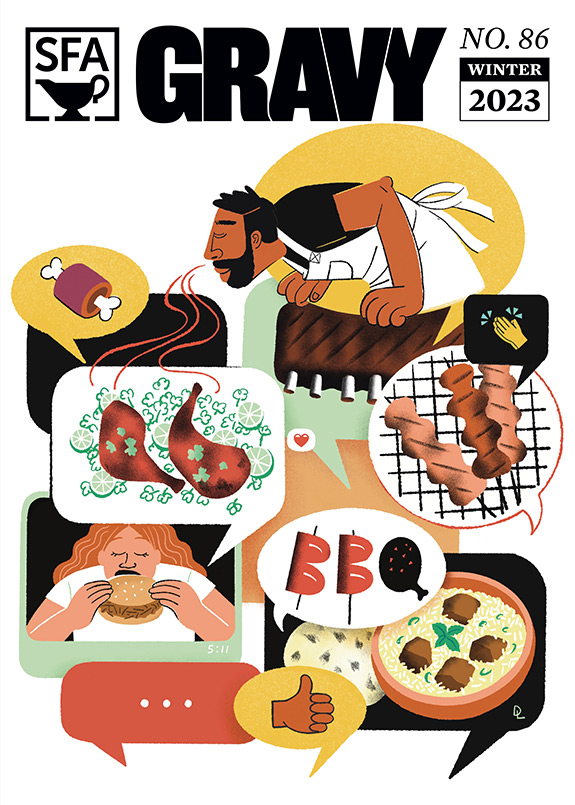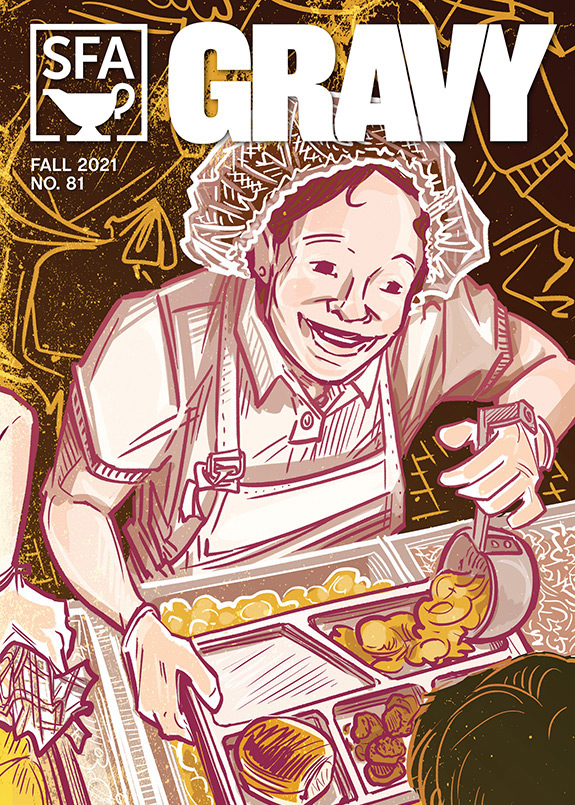THRIVE A white paper on the influence of the Southern Foodways Alliance
On a warm day in July of 1999, three dozen chefs, cooks, writers, and academics met in Birmingham, Alabama, to found a nonprofit that would document, study, and explore the diverse food cultures of the changing American South.
That night they dined on rabbit pilau at Highlands Bar and Grill, the restaurant owned by Frank and Pardis Stitt that helped kindle the American regional food renaissance.
Since that first gathering two decades ago, the Southern Foodways Alliance has become a powerful force at the intersection of food, culture, history, and fellowship. When SFA showcases a cook, farmer, or artisan, media coverage often spikes significantly. Many members credit the support and collective wisdom of the SFA for thriving careers and businesses.
Members are drawn to the spiritual sanctuary of SFA events, where they feel both nurtured and challenged. Many say that SFA media and programming has driven seismic shifts in their thinking about identity and their relationship to the region.
SFA boldly explores the complex and often treacherous history of the South, delving into slavery, poverty, hunger, and the oppression of women, minorities, immigrants, and LGBTQ people. SFA dives into these loaded subjects with academic rigor, solemnity, joy, and a relentless drive to cultivate a better future while chronicling a tragic past.
This work was independently commissioned, researched, and written. Financial support for research came from Brook and Pam Smith of Louisville, Kentucky, who wanted to document the unique DNA of the Southern Foodways Alliance and the ways the organization creates value and impacts lives across the South and beyond.
The SFA community generously shared their stories and insights through more than 50 hours of interviews. Thanks to Kristie Abney, Rosalind Bentley, Scott Blackwell, Ashley Christensen, Theresa Chu, Mark Essig, Marcie Cohen Ferris, Asha Gomez, Will Harris, Meherwan Irani, Sam Jones, Ann Marshall, Nancie McDermott, Angie Mosier, Justin Nystrom, Julian Rankin, Ashanté Reese, Rodney Scott, Pardis Stitt, and Sean Wilson for sharing.
SFA leadership was also gracious with interviews and data, and for that I thank John T. Edge, Melissa Hall, Mary Beth Lasseter, and the rest of the folks who keep SFA running.
Any errors, omissions and oversights are solely mine.
– Mary Jane Credeur
Decatur, GA
September 2018
Table of Contents
Click here to download the full PDF
I. We Are One
Rodney Scott realized that there is just as much merit in his kind of cooking as that of any fine dining chef.
II. Measuring Impact
The SFA’s biggest impact is arguably the exposure it generates for the often unknown or little-known cooks, restaurateurs, farmers, and artisans featured in SFA podcast episodes, films, oral histories, journal articles, and at events.
III. Super Spreaders
“We consider it a family reunion. We do business with a number of people there now, but we don’t take our business cards with us.”
IV. What is Southern?
“Before, we thought about roots. Now, we think more about connectivity.”
V. It’s Complicated
“Our mission is to use food and meal experiences to engage dialogue, not sate culinary cravings.”
VI. Academic Cachet
SFA isn’t bound by student recruiting drives, construction capital campaigns, and tricky internal politics of academia.
VII. The Tonight Show Starring Johnny Carson
John T. Edge plans to do more teaching and writing over the next five years, stepping back from day-to-day SFA leadership.
VIII. Where To?
As SFA enters its third decade, leaders have a singular vision of driving further progress in the South and beyond.





